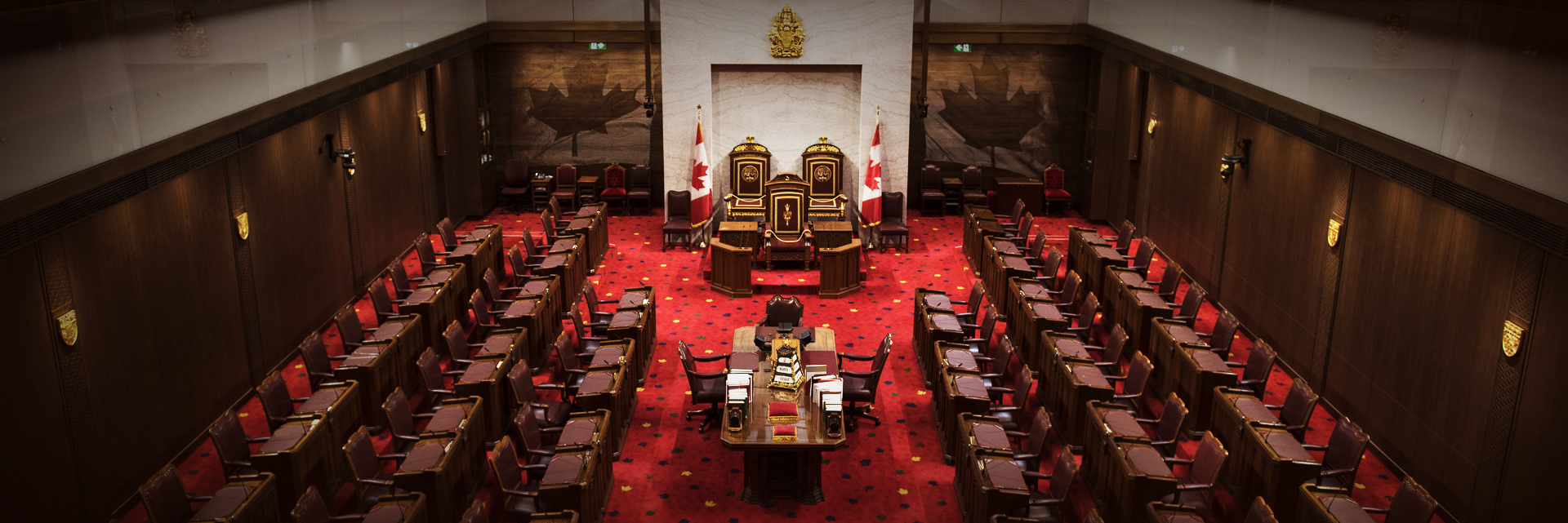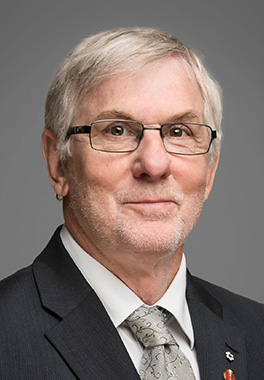
Foreign Influence Registry and Accountability Bill
Bill to Amend--Second Reading--Debate Continued
May 16, 2023
Your Honour, congratulations to you.
Honourable senators, this item is adjourned in the name of Senator Clement, and I ask for leave of the Senate that following my intervention, the balance of her time to speak to this item be reserved.
Is leave granted?
So ordered.
Thank you.
Although I am the critic on this particular Senate bill, I will be very brief. I tend to support it. It’s Senator Housakos’ bill.
Honourable senators, I suppose a nation must have some kind of moral force in order to remain a nation. That is a force independent enough to stand for its own principles, no matter the consequences, from those who would in some way wish to do us injury or harm. What we must also realize is that there are countries quite willing to take advantage and do us harm, and we must be vigilant in knowing this.
For a nation is beset at times both inside its borders, with discontent, and beyond its borders, with enmity. To ignore this is to open one’s nation to internal displeasure and external attacks. I believe what is being asked with this bill is simply to decide whether we have a country which needs protection from outside forces — nothing more and nothing less. But in Canada today, it seems a very difficult question for some reason.
Would we let a neighbour come into our house and compromise or threaten our family? In the most basic sense, this is the question being asked, and in the most basic sense, this is what has happened to our country in the last few years.
I think a foreign registry is not a harsh thing to request and not an unreasonable position to take. To protect one’s citizens, one must be conscious that those citizens have every right to be protected from predatory influence. Nor is it unreasonable to say that neglecting this obligation on even a small level is to neglect the duty to our citizens that our country has pledged by the very fact that it is a country, with its own constitution, borders and laws.
I suppose it depends on what country we want and what standards we demand of ourselves. So we might ask: If we are floundering in an abyss of modified standards, if our ships are behind schedule today, if our planes are years out of date, if our men and women in uniform — as brave and competent as they are and always were — do not amount to one division, and if our obligation to NATO is at its lowest ebb, do we answer that this is true? And if we do, then what does that say about us as a nation or a people?
Perhaps it says that we have little notion of what obligates a citizenry to their nation or to the greater world, to the allies who continually rely upon us. And are those at the gates willing to do us ill? We might ask this.
A foreign registry for those who work on behalf of a foreign government is both sane and practical and is practised in countries where those who do work on behalf of other nations are held accountable for what they do. I don’t think this is a terrible thing, nor is it a racist policy. It is a sane practice to keep one’s nation and its people safe from foreign bellicosity.
If national protection of our own citizenry is horrid against China or other nations, then why do China and other nations have it against so many others?
Canadian officialdom is filled with the impractical idea that the best way to fix any given crisis is by never responding to it in a timely fashion. I believe over the last number of years, more than a few nations have relied upon this aberration. It is evident in the North, within sight of our own borders, and, at times, off the Atlantic coast with other fishing fleets.
But I will come back to the first point: We have to decide if we are a country and not a post-nation nation. It is as simple and as profound and as existential as that. If we are a nation, then we must be vigilant in honouring our commitment to it and to our people, no matter who they are or where they are from — from First Nations to French to English to Chinese to Japanese.
Please let me offer a hockey analogy. “We become a nation when we drop the puck,” I told Ron MacLean once about our hockey. That is because no one ever had to tell Canadians why they are on the ice. I wish we observed the same traits of tenacity, boldness and honour in assuming our democratic state and democratic values.
A foreign registry would simply keep in check those who work on behalf of a foreign entity. I am not saying that we treat any of them dishonourably. I’m saying if it became unjust, it would be called, and a penalty would ensue.
I will end here with a note about a battle that took place long ago. I will use it as a reminder of whom we once were. At Ypres in 1915, the first time the Germans used gas, the Canadians held their position when all around them fled. They were the only forces who would not give up the trench. They held the line. They did so because they felt they had to, and they refused to break and run. They were Canadians of all different races: Chinese, First Nations, English and French. They held their ground, as they did on Juno Beach and in Korea.
In honour of them, we should have vigilance and never give up our position or our love of country. In that regard, and in light of what has happened because of foreign meddling in the last five years, I am asking that this bill go to committee as soon as possible.
Thank you.

